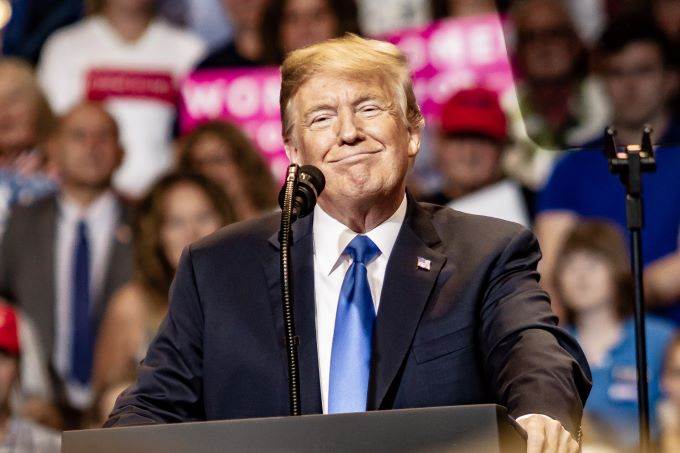 Only hours before his impeachment trial was set to begin, U.S. President Donald Trump addressed an eager crowd at the 50th annual World Economic Forum in Davos, Switzerland. Trump used his podium to promote his “America First” agenda and to call on other world leaders to implement their own nation-centric economic and political agendas. “America’s newfound prosperity is undeniable, unprecedented and unmatched anywhere in the world,” Trump said about his uncompromising drive to support the U.S. economy at all costs. He credited his decision to make sweeping policy reforms instead of small changes as the catalyst for America’s recent period of economic growth. “A nation’s highest duty is to its own citizens,” Trump added. “Only when governments put their citizens first, will they be invested in their national futures.”
Only hours before his impeachment trial was set to begin, U.S. President Donald Trump addressed an eager crowd at the 50th annual World Economic Forum in Davos, Switzerland. Trump used his podium to promote his “America First” agenda and to call on other world leaders to implement their own nation-centric economic and political agendas. “America’s newfound prosperity is undeniable, unprecedented and unmatched anywhere in the world,” Trump said about his uncompromising drive to support the U.S. economy at all costs. He credited his decision to make sweeping policy reforms instead of small changes as the catalyst for America’s recent period of economic growth. “A nation’s highest duty is to its own citizens,” Trump added. “Only when governments put their citizens first, will they be invested in their national futures.”
Trump’s aggressive efforts have ruffled more then a few feathers among other political leaders, but have eventually lead to the signing of several trade deals, including the highly anticipated “phase 1” trade deal between the U.S. and China last week, and a trade deal with Canada that will allow the U.S. better access to Canada’s dairy industry. Within the U.S., Trump’s aggressive tax cuts widened the rift between the Republicans and the Democrats, though in retrospect, many U.S. citizens, democrats included, were happy with the results as U.S. unemployment hit all-time lows and the economy continues to flourish.
President Trump also discussed his highly controversial opinions on climate change, where he called climate activists “prophets of doom” and rejected their warnings about the dangers of global warming and emissions. Trump’s inflammatory comments about climate issues came despite the fact that climate is the focus of this year’s WEF.
Reports from the U.S. Commodity Futures Trading Commission (CFTC) released on Tuesday highlighted the fact that dollar bullishness in future markets stands at its lowest level in more than 18 months. Bearish approaches to the dollar have been prompted recently by easing concerns over the Brexit and the signing of several global trade deals that could bring growth back to the markets. These easing fears have increased risk appetite, sending traders away from the dollar and into more riskier assets.
The dollar index eased in the past few trading sessions, and was stable on Wednesday afternoon in Asia, sitting at 97.63 .DXY as of 2:55 p.m. HK/SIN. The dollar gained 0.16 percent against the yen, to trade at 110.04, breaking the important 110 mark after falling below on Tuesday.
Asian indexes reversed their recent downtrend, with Hong Kong’s Hang Seng Index heading up 1.08 percent and Japan’s Nikkei 225 up 0.70 percent. Despite lingering concerns about the spread of the coronavirus in China, both Chinese benchmarks were also higher, with the Shanghai Composite up 0.41 percent and the Shenzhen Composite up 0.92 percent.
